Blog
Corporate Alumni Management – Lifelong Relations With Former Employees

Discover the world of corporate alumni management with this comprehensive overview encompassing alumni program ideas, case studies showcasing successful alumni networks, challenges faced, essential tools, and future trends.
Overview
- What is Corporate Alumni Management?
- Benefits of Corporate Alumni Management
- Strategies for Effective Corporate Alumni Management
- Case Studies of Successful Corporate Alumni Programs
- Overcoming Challenges in Alumni Management
- Tools and Technologies for Corporate Alumni Management
- Future Trends in Corporate Alumni Management
- Conclusion
- Frequently Asked Questions (FAQs) About Corporate Alumni Management

What is Corporate Alumni Management?
Definition of Corporate Alumni Management
Corporate Alumni Management refers to the practice of nurturing and maintaining relationships with an organization's former employees. It involves creating an engaged community of former employees who remain connected to the organization after they leave to join another employer, partner, start their own business, or retire.
Importance of Managing Alumni Relations
Corporate alumni management is on the rise. This page explores the benefits of an alumni community, strategies for effective alumni engagement, case studies of successful corporate alumni networks, challenges to overcome when managing a corporate alumni program, tools like dedicated alumni management software, future trends, and an overview of the most frequently asked questions.
We believe that lifelong relationships are the foundation for mutual success for the organization and the alumni. These kinds of networks are especially valuable in a world where companies are global, people are mobile, and can oftentimes work from anywhere. In addition, the sense of belonging can be a powerful benefit.
Benefits of Corporate Alumni Management
Retaining Valuable Connections
Corporate alumni management allows companies to stay connected with their former employees, tapping into their knowledge, skills, and network. Alumni can provide valuable insights, industry updates, and act as brand ambassadors, contributing to the overall success of the organization.
Tapping into a Talent Pool with Boomerang Employees
By actively managing alumni relationships, companies can access a talent pool of experienced professionals who are already familiar with their organization's culture and values. This can lead to cost savings in recruitment efforts and reduced onboarding time for rehires. These boomerang employees consitute a growing number of new hires across many industries.
Enhancing Brand Reputation
Strong alumni networks reflect positively on a company's brand reputation. Alumni who have had a positive experience during their tenure are more likely to recommend the organization to potential hires, clients, and business partners.
Boosting Employee Morale
When current employees witness the organization's commitment to nurturing relationships with former employees, it boosts their morale and loyalty. They feel more valued, knowing that their contributions will be appreciated even after they move on from the company.
Strategies for Effective Corporate Alumni Management
Creating an Alumni Network
Establishing a corporate alumni network is crucial for effective management. Companies can develop a dedicated online platform or leverage existing social media channels to connect and engage with their former employees. This provides a centralized hub for communication, updates, and networking opportunities.
Who Should be Invited to the Alumni Community?
When deciding who to include in your corporate alumni community, culture plays a pivotal role, but best practice is to create an inclusive program that embraces a wide range of individuals.
Elevate the Offboarding Experience to Enhance Alumni Program Onboarding
The employee offboarding experience is essential for a successful transition into a corporate alumni program. By ensuring employees leave on good terms and providing necessary support, organizations foster trust and loyalty, setting the foundation for alumni program onboarding.
Engaging Alumni Through Events
Organizing alumni events, such as reunions, networking sessions, or industry conferences, can help foster a sense of community among alumni. Additionally, providing access to a specialized online platform where alumni can interact, share knowledge, and collaborate, further strengthens engagement.
Offering Exclusive Perks and Benefits
To incentivize participation, companies can offer exclusive perks and benefits to their alumni. This can include access to professional development resources, discounts on products or services, invitations to company events, or even priority consideration for job openings. By providing tangible value, companies encourage alumni to stay engaged and maintain their connection with the organization.
Providing Ongoing Communication and Support
Regular and meaningful communication is key to successful alumni management. Companies can share relevant news, updates, and industry insights with their alumni through alumni newsletters, email campaigns, or social media groups. Additionally, offering ongoing support, such as career guidance, mentorship programs, or assistance with job searches, demonstrates a commitment to the professional growth of alumni.
Leveraging Software Integrations
Integrating your internal software systems with a corporate alumni platform offers numerous benefits. It enhances insights, streamlines processes, and reduces manual tasks, ultimately increasing the efficiency of your team and program. Mature alumni programs commonly integrate with HR systems for employee and leaver data, as well as current job requisitions. Professional service firms seek CRM system integration, recognizing alumni as clients and prospects. For consumer and retail companies, integrating with loyalty programs is key.
As these programs evolve, integrations prove invaluable, streamlining operations, and creating value for all stakeholders. Leadership achieves engagement goals, alumni managers gain automation and focus on strategic initiatives, and users enjoy a seamless experience.
Case Studies of Successful Corporate Alumni Programs
SAP: Leveraging Alumni as Authentic Brand Ambassadors
Recognizing the strategic potential of their alumni network, SAP took proactive steps beginning of 2015 to nurture relationships, leverage alumni as brand ambassadors, and tap into their vast network of connections as a source of talent, quality referrals and business development. To effectively manage and maximize these opportunities, SAP partnered with PeoplePath in 2017 as their chosen alumni platform vendor.
Bechtel: Demonstrating Alumni Program Value with 25% Rehires
Bechtel has long valued their corporate alumni program and partnered with PeoplePath to further enhance their alumni outreach. Through their well thought-out strategy and our powerful platform this case study will outline how Bechtel focuses on the recruitment of boomerangs as one of their top program goals.
Alumni Mentoring and Career Development Programs
Our third example, a renowned financial institution, implemented alumni mentoring and career development programs to support their ex-employees' professional growth. Alumni were paired with current employees seeking guidance, providing valuable mentorship opportunities. Additionally, the company organized training sessions, webinars, and workshops exclusively for their alumni, ensuring they remained up-to-date with industry trends and enhancing their employability.
Alumni Leader Spotlights
Explore the world of corporate alumni networks and gain valuable insights through personal journeys and success stories from accomplished alumni managers across diverse industries proudly served by PeoplePath. Delve into firsthand experiences, best practices, and innovative strategies implemented by these trailblazers, shedding light on the impact of robust corporate alumni networks. Discover how alumni engagement fosters lasting connections and drives success in various professional spheres.

Jennifer Gewertz, Arnold & Porter
Jen has established a thriving corporate alumni program, gaining recognition in legal circles and among alumni leaders.

Beatriz Nava, Accenture
Bea's journey at Accenture took her to overseeing one of the world's largest corporate alumni programs, aiming to enhance its value through innovation.

Anne McGovern, Duke Energy
Anne offers insightful advice on network management and how she tackles a common roadblock when building an alumni community.

Lena Gunderman, Wilson Sonsini
Lena, an Alumni Engagement Manager since 2006, excels in business development through fostering partnerships and identifying growth opportunities.

AleQ Bateman, Starbucks
AleQ, a Starbucks Alumni Community team manager with over a decade at Starbucks, started as a barista and played a key role in shaping its alumni program.

Emily Abner, Norton Healthcare
Since 2016, Emily, a program coordinator at Norton Healthcare, played a key role in launching the successful Norton Healthcare Alumni Network in 2021.

Karen Cheung, Sullivan & Cromwell
Karen, Associate Director of Client and Alumni Service at Sullivan & Cromwell, oversees the firm's global alumni network of 4,000+ former attorneys launched in 2016.
Overcoming Challenges in Alumni Management
Maintaining Active Participation
One of the challenges in alumni management is ensuring active participation. To address this, companies should regularly provide engaging and valuable content, foster a sense of community, and create opportunities for alumni to contribute and network. By continuously demonstrating the benefits of staying connected, and providing value to the participants, companies can encourage alumni to remain active in the community.
Addressing Privacy Concerns
Privacy concerns can arise when managing alumni data. It is crucial for companies to handle alumni information in compliance with data protection regulations. Implementing secure data storage, obtaining consent for communication, and allowing alumni to control their privacy settings can help alleviate privacy concerns and build trust.
Tracking and Measuring Alumni Engagement
Measuring the success of alumni management programs can be challenging without proper tracking and analytics. Companies should utilize alumni management software and other tracking tools to monitor engagement metrics, such as event attendance, participation in online discussions, referrals, or rehires. This data provides valuable insights to optimize the program and demonstrate its effectiveness.
Tools and Technologies for Corporate Alumni Management
Alumni Management Software
Alumni management software simplifies the process of managing and engaging with alumni. It offers features like contact management, communication tools, event management, job boards with matching algorithms, and data analytics to track alumni engagement metrics. PeoplePath is one popular example of an alumni network platform provider specialized in corporate alumni management. A provider will serve as your strategic partner, assisting you in brainstorming creative alumni program ideas and effectively engaging alumni. You may find it helpful to read our guide on how to choose an alumni management software vendor.
Social Media Platforms vs. Online Communities
Public social media platforms such as LinkedIn or Instagram provide a convenient and familiar space for alumni to connect, interact, and stay updated. These platforms allow for easy communication, sharing of resources, and networking opportunities and are useful tools for alumni networks. Online communities (powered by a dedicated alumni management system) however, provide an exclusive place to ask sensitive questions, have content specifically designed for them, and offer a sense of belonging.
Data Analytics and Tracking Tools
Utilizing data analytics and tracking tools can provide valuable insights into alumni engagement and program effectiveness. These tools are an important part of professional alumni management software and help measure metrics such as event attendance, website traffic, social media interactions, and alumni participation. By analyzing this data, companies can identify trends, make informed decisions, and optimize their alumni management strategies. Read more about why you need to continuously prove the ROI of your alumni program.
Global organizations trust the PeoplePath platform
A selection of customers around the world who use our software.


















Future Trends in Corporate Alumni Management
Personalization and Customized Experiences
As technology advances, personalization and customized experiences will play a crucial role in alumni management. Companies will tailor their communications, events, and offerings to individual alumni preferences, providing a more personalized experience that fosters engagement and loyalty.
Leveraging Artificial Intelligence and Automation
Artificial intelligence (AI) and automation will increasingly be integrated into alumni management processes. AI-powered chatbots can handle routine inquiries and provide instant support, while automation can streamline administrative tasks, allowing companies to focus on building meaningful relationships with their alumni.
Collaboration with Educational Institutions
Collaboration between companies and educational institutions will become more prevalent in alumni management. Organizations can partner with universities and colleges to provide ongoing education, professional development opportunities, and mentorship programs, further strengthening the bond between alumni and the company.
Conclusion
In conclusion, corporate alumni management is a strategic approach that offers numerous benefits to organizations. While there are challenges to corporate alumni management, the benefits can be significant and contribute to long-term business success.
By maintaining strong connections with former employees, companies can tap into their knowledge, networks, and loyalty. Doing so, they build valuable talent pools, drive referrals and business opportunities, and gain insights into industry trends.
Effective alumni management involves creating engaging networks, providing exclusive perks and benefits, and fostering ongoing communication and support. Best practices for corporate alumni management include having a dedicated alumni manager, creating a robust database, offering creative opportunities, and measuring the success of alumni engagement.
Through successful case studies, we have seen how alumni can contribute to referrals, business development, and specialized projects. However, challenges like maintaining active participation and addressing privacy concerns need to be overcome.
Utilizing tools like dedicated alumni management software, social media platforms, and data analytics can enhance alumni engagement and track a program's success.
Looking ahead, personalization, AI, and collaboration with other organizations will shape the future of corporate alumni management.
Frequently Asked Questions About Corporate Alumni Management
Let's get started!
Contact us today to explore your goals for alumni engagement.



